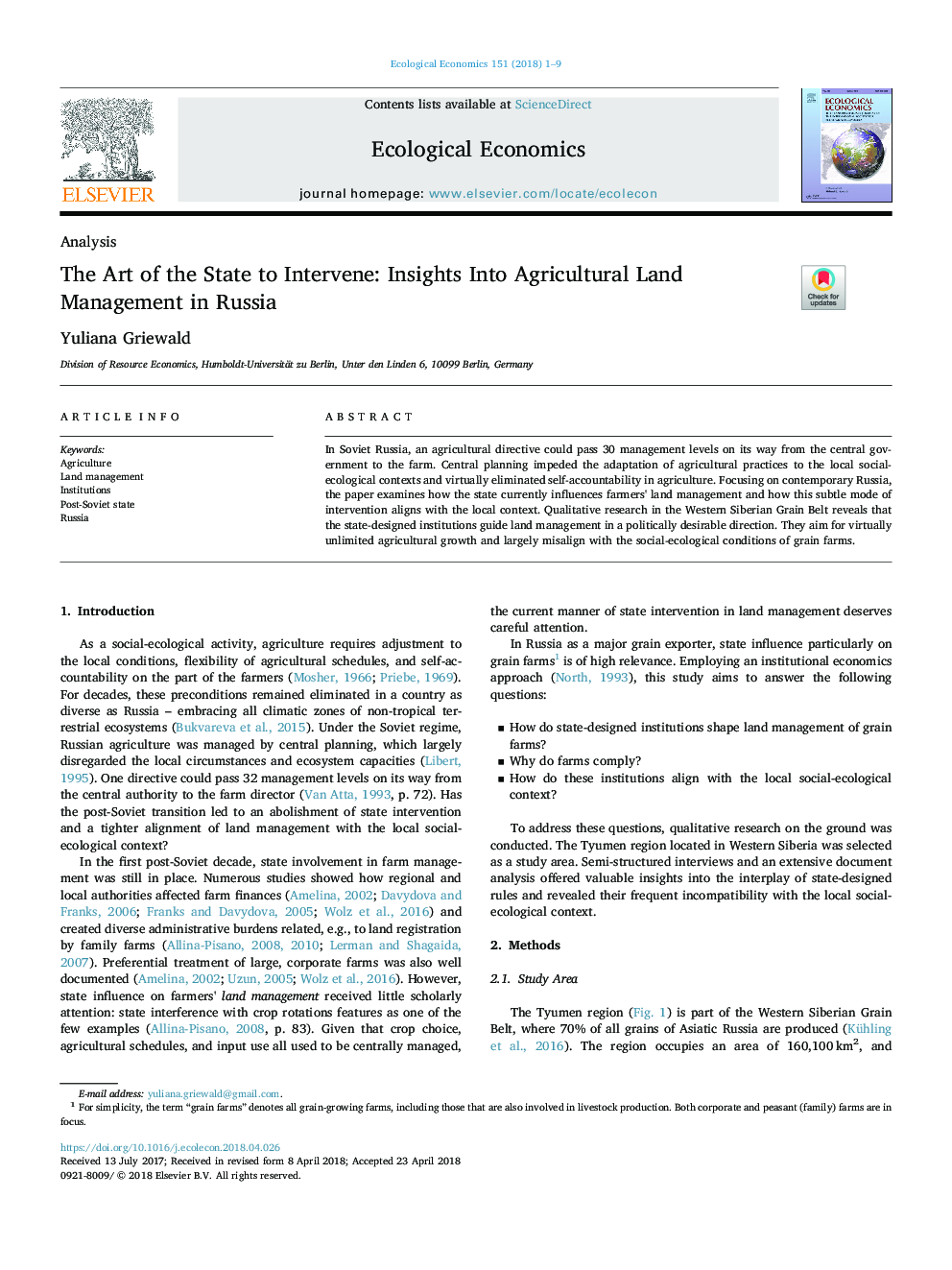| Article ID | Journal | Published Year | Pages | File Type |
|---|---|---|---|---|
| 7343858 | Ecological Economics | 2018 | 9 Pages |
Abstract
In Soviet Russia, an agricultural directive could pass 30 management levels on its way from the central government to the farm. Central planning impeded the adaptation of agricultural practices to the local social-ecological contexts and virtually eliminated self-accountability in agriculture. Focusing on contemporary Russia, the paper examines how the state currently influences farmers' land management and how this subtle mode of intervention aligns with the local context. Qualitative research in the Western Siberian Grain Belt reveals that the state-designed institutions guide land management in a politically desirable direction. They aim for virtually unlimited agricultural growth and largely misalign with the social-ecological conditions of grain farms.
Related Topics
Life Sciences
Agricultural and Biological Sciences
Ecology, Evolution, Behavior and Systematics
Authors
Yuliana Griewald,
